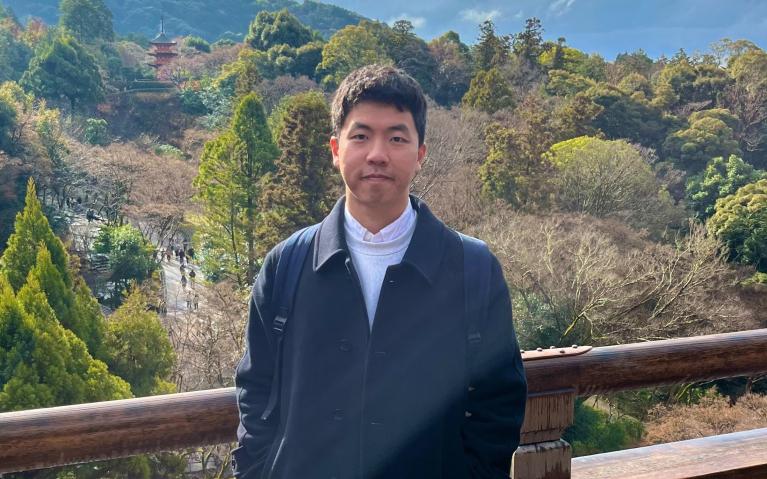
Eric Lee
Doctor of Philosophy in Bioinformatics (PhD)
Research Topic
Computational approaches for exploring the spatial dynamics of the cellular ecosystem
Theses completed in 2010 or later are listed below. Please note that there is a 6-12 month delay to add the latest theses.
The full abstract for this thesis is available in the body of the thesis, and will be available when the embargo expires.
View record
Cancer cells follow evolutionary principles leading to clonal populations that are nearly genetically identical, called clones. Using single-cell DNA sequencing technologies, a copy number profile of each clone can be found. This copy number profile can then be used to infer the relatedness of the cells in the sample, represented by a phylogeny. Clades in the phylogeny are determined to be the clones based on similarity in mutation profiles. From the same tumour sample, single-cell RNAsequencing allows the measurement of the gene expression. These cells can then be matched to the clones based on the copy number changes and abundances in expression in those regions. From here, it is natural to compare the gene expression between the clones, as this phenotypic characterization can provide insight into treatment resistance and metastasis. Tools for differential expression analyses that compare the clones cannot determine exactly where in their evolutionary history the changes in gene expression occurred. We propose to use a Bayesian phylogenetic model to infer the expression states at ancestral, unobserved clones. This model takes as input the phylogeny determined from the DNA mutation profiles as well as RNA sequencing counts matched to the clones. The RNA sequencing data is binned into discrete values to be used in the discrete trait phylogenetic model. We use a Markov Chain Monte Carlo Algorithm to infer parameters of the model which are then used to infer the ancestral gene expression states. After the ancestral states have been inferred, we find genes that had changes in expression state alongeach branch. We test the performance of this approach on synthetic and real data, and demonstrate how the results can be used for downstream analysis to identify changes in expression during cancer evolution.
View record
In the course of tumour progression, normal and malignant cells of various kinds of cell types engage in complex patterns of cell-cell interactions creating the tumor microenvironment. The dynamics in the tumour microenvironment are tumour-driven and fosters cellular heterogeneity to modulate cancer behavior. With an accurate classification of the cell type composition and a deep investigation of the cell-cell interactions, we can characterize the heterogeneity in the tumor microenvironment and potentially elucidate mechanisms of immune invasion, tumour growth, and metastases.Analyses of single cells in suspension using mass cytometry is a current approach used to characterize previously unknown phenotypes, yet the data generated by this approach are disaggregated and do not retain the spatial structure of tumours. Emerging high-throughput spatial expression profiling technologies, such as imaging mass cytometry allow for spatially aware profiling of single cell expression in high-parameter space. Various cell type classification methods have been proposed for disaggregated data, however there is a need for spatially aware clustering methods.We present SpatialSort, a scalable joint approach for spatially aware clustering of cell types and estimation of cell-cell interactions in the tumour microenvironment.This computational approach leverages a Markov random field model to allow spatially proximal cells linked in a neighbour graph to influence the cluster assignment of their neighbouring cells. Markov chain Monte Carlo sampling is employed to approximate the posterior distribution and perform probabilistic cell type identification. Cell to cell interactions will be encoded as interpretable model parameters representing the affinity between different cell types.Through spatially aware clustering, we hope to characterize patient-specific phenotypic heterogeneity better than our current methods. As heterogeneity promotes therapeutic resistance, an improved understanding of cellular composition and cell-cell interaction profiles can potentially provide better prognosis for cancer patients.
View record
If this is your researcher profile you can log in to the Faculty & Staff portal to update your details and provide recruitment preferences.